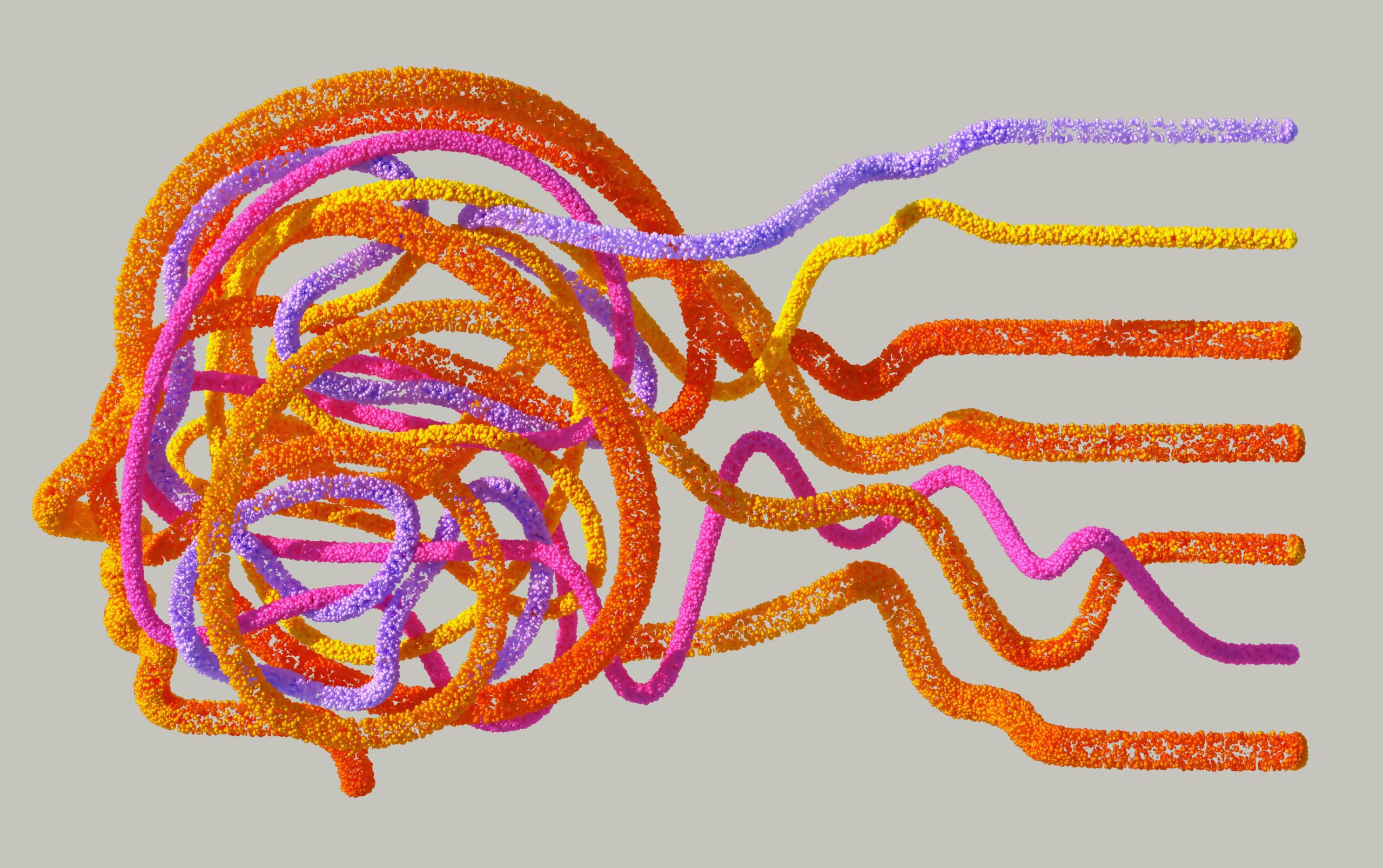Your brain holds extraordinary potential waiting to be unleashed. Modern neuroscience reveals that mastering your mind isn’t about luck—it’s about applying proven optimization strategies.
The gap between average and exceptional performance often comes down to how well you harness your brain’s capabilities. Whether you’re an entrepreneur, athlete, student, or creative professional, understanding the foundations of brain optimization can transform your results and unlock levels of performance you never thought possible.
🧠 The Neuroscience Revolution Behind Peak Performance
Brain optimization isn’t a mystical concept—it’s grounded in decades of neuroscientific research. Your brain contains approximately 86 billion neurons, each capable of forming thousands of connections. These neural pathways determine everything from your reaction time to your capacity for creative problem-solving.
Recent advances in neuroimaging technology have allowed researchers to observe the brain in action, revealing how high-performers think differently. Studies using fMRI scans show that individuals operating at peak performance demonstrate enhanced connectivity between different brain regions, particularly between the prefrontal cortex and the limbic system.
This connectivity isn’t fixed at birth. Thanks to neuroplasticity—your brain’s ability to reorganize itself—you can actively strengthen these connections through targeted techniques. The implications are profound: your cognitive capabilities aren’t set in stone, and deliberate practice can literally rewire your neural architecture for superior performance.
Building Your Cognitive Foundation: The Four Pillars
Brain optimization rests on four foundational pillars that work synergistically to enhance mental performance. Neglecting any single pillar compromises your overall cognitive function, while strengthening all four creates a multiplier effect.
1. Neurochemical Balance: Optimizing Your Brain’s Chemistry
Your brain operates through chemical messengers called neurotransmitters. Dopamine drives motivation and reward-seeking behavior. Serotonin regulates mood and emotional stability. Norepinephrine controls attention and arousal. Acetylcholine facilitates learning and memory formation.
Optimizing these neurotransmitters doesn’t require pharmaceutical intervention. Strategic nutrition, targeted supplementation, and lifestyle modifications can dramatically improve your neurochemical profile. Consuming adequate protein ensures your brain has the amino acid building blocks needed for neurotransmitter synthesis. Omega-3 fatty acids, particularly DHA, support cell membrane health and enhance neural communication.
Sleep quality profoundly impacts neurochemical balance. During deep sleep, your brain flushes out metabolic waste products through the glymphatic system while consolidating memories and restoring neurotransmitter reserves. Even one night of poor sleep can disrupt this delicate balance, impairing cognitive function for days.
2. Neural Efficiency: Training Your Brain Like an Athlete
Elite athletes don’t just train their muscles—they train their nervous systems to fire more efficiently. The same principle applies to cognitive performance. Your brain can learn to process information faster, make decisions more accurately, and sustain focus for longer periods through deliberate training.
Meditation serves as foundational neural training. Research from Harvard Medical School demonstrates that consistent meditation practice increases gray matter density in brain regions associated with learning, memory, and emotional regulation. Even eight weeks of daily 20-minute meditation sessions produces measurable structural changes visible on brain scans.
Cognitive exercises targeting specific mental faculties build neural efficiency in those domains. Working memory training improves your capacity to hold and manipulate information. Attention training enhances your ability to filter distractions and maintain focus. Processing speed exercises accelerate how quickly your brain analyzes and responds to information.
3. Energy Management: Fueling Peak Cognitive Performance
Your brain represents only 2% of your body weight but consumes approximately 20% of your total energy expenditure. This massive energy requirement means that cognitive performance is intimately linked to metabolic health and energy management strategies.
Glucose serves as your brain’s primary fuel source, but how you deliver that glucose matters enormously. Stable blood sugar levels support sustained cognitive function, while dramatic spikes and crashes impair focus, decision-making, and emotional control. Consuming complex carbohydrates, healthy fats, and adequate protein creates steady energy release throughout the day.
Mitochondrial health determines how efficiently your cells produce energy. These cellular powerhouses become less efficient with age, but targeted interventions can preserve and even enhance their function. Regular exercise, particularly high-intensity interval training, stimulates mitochondrial biogenesis—the creation of new mitochondria. Specific compounds like CoQ10, alpha-lipoic acid, and PQQ support mitochondrial energy production.
4. Stress Resilience: Building Antifragile Mental Systems
Peak performance doesn’t mean eliminating stress—it means developing resilience to stress. The concept of hormesis suggests that moderate stressors actually strengthen biological systems, making them more robust. Your brain follows this same principle.
Chronic, unmanaged stress floods your system with cortisol, which impairs memory formation, reduces neuroplasticity, and can even cause hippocampal atrophy. However, acute, manageable stressors followed by recovery periods enhance stress tolerance and cognitive function.
Cold exposure, for instance, triggers a cascade of adaptive responses. Regular cold showers or ice baths increase norepinephrine levels, improve mood, sharpen focus, and build mental toughness. The key is applying the stressor intentionally, with adequate recovery time, rather than remaining in a constant state of chronic stress.
⚡ Advanced Optimization Techniques for Accelerated Results
Once you’ve established foundational practices, advanced techniques can accelerate your progress toward peak cognitive performance. These methods leverage cutting-edge neuroscience research to produce measurable improvements in shorter timeframes.
Neurofeedback: Real-Time Brain Training
Neurofeedback uses real-time displays of brain activity to teach self-regulation of brain function. During sessions, sensors monitor your brainwave patterns while you receive immediate feedback through visual or auditory signals. This allows you to learn how to consciously influence brain states that correlate with optimal performance.
Elite athletes, executives, and performers increasingly use neurofeedback to enhance focus, reduce performance anxiety, and access flow states on demand. Research demonstrates that neurofeedback training can improve attention in individuals with ADHD, reduce anxiety symptoms, and enhance peak performance capabilities in healthy individuals.
Intermittent Fasting: Metabolic Optimization for Brain Health
Time-restricted eating patterns trigger beneficial metabolic shifts that enhance cognitive function. During fasting periods, your body transitions from glucose metabolism to fat metabolism, producing ketone bodies that serve as an alternative, highly efficient brain fuel.
Ketones provide several cognitive advantages. They generate more ATP per unit of oxygen consumed compared to glucose, improving energy efficiency. They reduce oxidative stress and inflammation in the brain. They increase BDNF production, a critical protein for neuroplasticity and neurogenesis.
A simple 16:8 intermittent fasting protocol—restricting eating to an 8-hour window each day—produces many of these benefits while remaining sustainable long-term. Many practitioners report enhanced mental clarity, especially in the morning hours before breaking their fast.
Strategic Nootropic Supplementation
Nootropics, often called “smart drugs” or cognitive enhancers, represent compounds that improve mental function. While pharmaceutical options exist, numerous natural substances demonstrate cognitive-enhancing properties with excellent safety profiles.
Caffeine combined with L-theanine creates a synergistic effect that improves both attention and mood while reducing the jitteriness associated with caffeine alone. Bacopa monnieri enhances memory formation and reduces anxiety. Lion’s mane mushroom stimulates nerve growth factor production, supporting brain health and neuroplasticity. Rhodiola rosea improves mental performance under stress and reduces fatigue.
The key to effective nootropic use is personalization and cycling. What works optimally for one person may produce different results in another due to genetic variations in neurotransmitter systems. Additionally, cycling supplements prevents tolerance development and maintains their effectiveness.
🎯 Flow States: The Ultimate Performance Optimization
Flow represents the pinnacle of human performance—a state of complete absorption where performance skyrockets, time perception alters, and the sense of self dissolves. During flow, your brain operates with remarkable efficiency, activating only the neural networks necessary for the task while quieting self-referential thinking.
Neurologically, flow involves transient hypofrontality—a temporary reduction in activity in the prefrontal cortex. This counterintuitive finding explains why flow feels effortless despite producing superior results. The inner critic falls silent, overthinking disappears, and action and awareness merge seamlessly.
Engineering Flow: Practical Trigger Mechanisms
Flow isn’t mystical—it follows reliable principles. Research identifies specific triggers that increase the likelihood of entering flow states. Understanding and deploying these triggers systematically transforms flow from a rare accident into a regular occurrence.
Challenge-skill balance represents the most critical trigger. Flow emerges when a task stretches your abilities by approximately 4%—enough to demand full attention without causing overwhelming anxiety. Too easy and you’re bored; too difficult and you’re stressed. The sweet spot produces optimal engagement.
Clear goals and immediate feedback create the structure that allows flow to emerge. When you know exactly what you’re trying to accomplish and receive constant information about your progress, your brain can fully commit to the task without distracting uncertainty.
Deep embodiment and rich environments enhance flow probability. Physical activities naturally facilitate flow because they demand presence and provide immediate sensory feedback. However, knowledge workers can engineer similar conditions by creating distraction-free environments and incorporating physical elements into their work.
💡 Practical Implementation: Your 30-Day Optimization Protocol
Understanding brain optimization principles means nothing without consistent application. This 30-day protocol provides a structured approach to implementing the foundational practices that drive measurable cognitive improvements.
Week 1: Establishing Baseline and Core Practices
Begin by assessing your current cognitive performance. Track metrics like focus duration, decision quality, memory performance, and subjective mental clarity. These baseline measurements allow you to objectively evaluate your progress.
Implement non-negotiable foundational practices: consistent sleep schedule (7-9 hours nightly), morning meditation (starting with just 10 minutes), and hydration optimization (consuming half your body weight in ounces of water daily). These simple changes create the platform for more advanced interventions.
Week 2: Nutritional Optimization
Refine your nutrition to support brain function. Eliminate processed foods, refined sugars, and inflammatory oils. Increase consumption of fatty fish, leafy greens, berries, nuts, and seeds—foods rich in the nutrients your brain requires for optimal function.
Consider implementing a 12-hour overnight fast, gradually extending to 14-16 hours if it feels manageable. This metabolic strategy enhances cognitive function while improving overall health markers.
Week 3: Cognitive Training and Recovery
Introduce deliberate cognitive training sessions. Dedicate 20-30 minutes daily to activities that challenge specific mental faculties—working memory exercises, learning new skills, or practicing attention control techniques.
Equally important, implement recovery practices. Schedule genuine breaks throughout your day. Incorporate brief movement sessions between focused work blocks. Practice active recovery techniques like light walking, breathwork, or brief meditation sessions.
Week 4: Integration and Personalization
Evaluate which practices produced the most noticeable benefits. Cognitive optimization is highly individual—what works optimally for others may not be your ideal protocol. Double down on the interventions that moved the needle for your specific physiology and context.
Begin experimenting with advanced techniques that interest you. Perhaps neurofeedback, targeted supplementation, or flow state engineering. The foundational month has prepared your nervous system to extract maximum benefit from these more sophisticated interventions.
🔬 Measuring Progress: Tracking Your Cognitive Enhancement
What gets measured gets managed. Tracking your cognitive performance provides objective feedback that keeps you motivated and allows you to refine your optimization protocol based on actual results rather than subjective impressions.
Quantitative assessments offer concrete data. Reaction time tests, memory assessments, processing speed evaluations, and attention span measurements all provide numerical scores you can track over time. Regular testing reveals whether your interventions are producing measurable improvements.
Qualitative tracking captures dimensions that numbers miss. Maintaining a brief daily journal noting mental clarity, emotional stability, creative insights, and subjective performance quality provides rich contextual information. Over time, patterns emerge that guide further optimization.
Biomarker testing provides deeper insight into the physiological foundations of cognitive function. Blood panels assessing inflammatory markers, hormone levels, nutrient status, and metabolic health reveal whether your biology supports optimal brain performance or requires additional intervention.
Building Sustainable High Performance: The Long Game
Brain optimization isn’t a sprint—it’s a lifelong practice. The most successful practitioners think in decades rather than days, implementing sustainable practices that compound over time rather than extreme interventions that burn them out.
Periodization applies to cognitive training just as it does to athletic training. Alternating between periods of intense focus and deliberate recovery prevents burnout while maximizing long-term gains. Elite performers structure their years with seasons of intense output followed by genuine rest and renewal.
Community and accountability dramatically increase adherence to optimization practices. Connecting with others pursuing similar goals provides motivation during difficult periods, accelerates learning through shared experiences, and creates positive social pressure to maintain your practices.
The integration of brain optimization techniques into your daily life shouldn’t feel like adding more to your plate—it should make everything on your plate easier to manage. When properly implemented, these practices don’t consume time; they multiply your effectiveness, allowing you to accomplish more while experiencing less stress and greater satisfaction.

🚀 Your Optimized Future Awaits
The science is clear: your brain possesses remarkable plasticity and untapped potential. The techniques outlined here aren’t theoretical—they’re practical, evidence-based interventions that produce measurable results when applied consistently.
Peak cognitive performance isn’t reserved for genetic outliers or pharmaceutical users. It’s accessible to anyone willing to understand how their brain works and systematically implement practices that optimize its function. The gap between your current performance and your potential isn’t as wide as you might think—it’s bridged through knowledge, consistency, and intelligent application of proven strategies.
The investment you make in brain optimization pays dividends across every domain of your life. Enhanced focus improves your professional output. Better emotional regulation strengthens your relationships. Increased mental clarity leads to superior decision-making. Greater cognitive resilience allows you to thrive under pressure rather than merely survive.
Begin today. Start small with foundational practices that create immediate wins. Build momentum through consistency. Expand your optimization toolkit as you progress. Document your journey and celebrate measurable improvements. Your brain is waiting to show you what it’s truly capable of achieving.
The cutting-edge foundations of brain optimization aren’t about becoming superhuman—they’re about becoming fully human, accessing the remarkable capabilities that have always existed within your nervous system. Master your mind, and you master the quality of your entire life experience. The techniques are proven, the science is sound, and your optimized future is waiting to be claimed.
Toni Santos is a cognitive storyteller and cultural researcher dedicated to exploring how memory, ritual, and neural imagination shape human experience. Through the lens of neuroscience and symbolic history, Toni investigates how thought patterns, ancestral practices, and sensory knowledge reveal the mind’s creative evolution. Fascinated by the parallels between ancient rituals and modern neural science, Toni’s work bridges data and myth, exploring how the human brain encodes meaning, emotion, and transformation. His approach connects cognitive research with philosophy, anthropology, and narrative art. Combining neuroaesthetics, ethical reflection, and cultural storytelling, he studies how creativity and cognition intertwine — and how science and spirituality often meet within the same human impulse to understand and transcend. His work is a tribute to: The intricate relationship between consciousness and culture The dialogue between ancient wisdom and neural science The enduring pursuit of meaning within the human mind Whether you are drawn to neuroscience, philosophy, or the poetic architecture of thought, Toni invites you to explore the landscapes of the mind — where knowledge, memory, and imagination converge.



